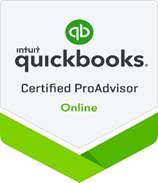There are several primary reasons that we even keep records of our financial transactions. The one that everyone thinks of first — is records for federal and state income tax records. And, this is truly an important reason for your records. You will want to have records showing your income and expenses so that your accountant can create your income tax returns. If you give him/her your box filled with lose paperwork, you will be charged for organizing that messy box of papers and transactions…And, it won’t be free. The easiest way to reduce your annual accounting prep fees is to organize your own system.

If you plan to borrow money from investors or bankers, you will need to present your financial records for review. Normally, you would provide an Income Statement, Balance Sheet, and tax returns, as well as other projections on how you plan to pay back the loan with interest. These types of bookkeeping functions are called financial accounting, and we’ll discuss CPA’s, other accounting services and reports in detail in the future.
Another primary reason that you’ll want to keep records is to determine the profitability of the business — are you making money? And, if not, what should be changed? Are you spending a lot of money on non-income producing items? New business owners need to learn the skill of evaluating every dollar spent and ask what is each dollar’s anticipated return to the business (ROI). For instance, expensive office furniture may be nice (and yes, it may be necessary in some industries), but it’s probably not what’s producing the income. Think carefully about the dollars you spend initially and where you will get the most return for your money. These internal decisions, and the use of your internal records, are called managerial accounting.
Other reasons for keeping records is that you will know if you owe money to others and whether others owe you payments for the purchase of your goods and services. If you have customers that owe you money, you’ll want to track those; and request and collect payments regularly — this is called an Accounts Receivable list. If you have vendors and suppliers that you owe money to, then you’ll track those to make sure you pay them when the bill is due — this is an Accounts Payable list. Late fees to suppliers can be eliminated by implementing a simple system, and there is seldom a good reason for having them assessed to your account. Late fees of any kind are a warning that your system isn’t working well for you.
Summary of today’s step-
Two types of accounting:
• Financial accounting for sharing your business information with others such as taxation and borrowing purposes
• Managerial accounting for internal decision-making so that your business can make more money to pay more taxes!








